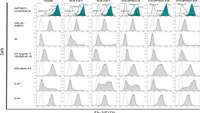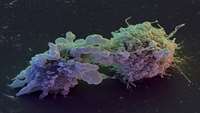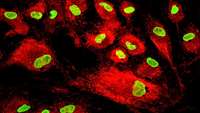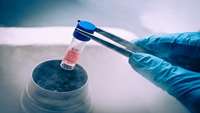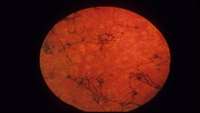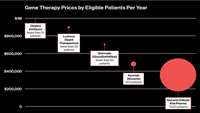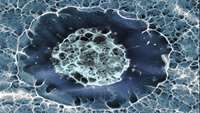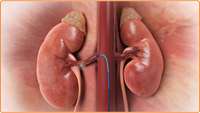HLA and Histo-Blood Group Antigen Expression in Human Pluripotent Stem Cells and their Derivatives
One prerequisite for a successful clinical outcome of human pluripotent stem cell (hPSC) based therapies is immune compatibility between grafted cells/tissue and recipient.
FDA approves first drug for spinal muscular atrophy
The U.S. Food and Drug Administration today approved Spinraza (nusinersen), the first drug approved to treat children and adults with spinal muscular atrophy (SMA), a rare and often fatal genetic disease affecting muscle strength and movement. Spinraza is an injection administered into the fluid surrounding the spinal cord.
CAR T therapy targeting ICAM-1 eliminates advanced human thyroid tumors
Purpose: Poorly-differentiated thyroid cancer and anaplastic thyroid cancer (ATC) are rare yet lethal malignancies with limited treatment options.
Repair of Torn Avascular Meniscal Cartilage Using Undifferentiated Autologous Mesenchymal Stem Cells
Meniscal cartilage tears are common and predispose to osteoarthritis (OA). Most occur in the avascular portion of the meniscus where current repair techniques usually fail.
Finally, unproven stem cell clinic practices might be curtailed
In a welcomed move, the Therapeutic Goods Administration (TGA) has this week announced reforms will be introduced in 2018 to address long held concerns about the provision of unproven stem cell treatments to increasing numbers of Australian and international patients.
Usher syndrome: Gene therapy restores hearing and balance
Over the past 20 years, scientists have made remarkable progress in deciphering the genetic origins of congenital hereditary hearing loss, which is usually caused by inner ear dysfunction.
Tracking the Cost of Gene Therapy
Gene therapy, which introduces new genetic material into a person’s DNA, was developed as a revolutionary way to treat some of the rarest syndromes on earth.
Chronic back pain stem cell treatment could cut need for opioids
A stem cell treatment could finally bring relief to millions of people with chronic lower back pain. If it works, the injection could become a crucial tool for curbing the opioid epidemic currently killing thousands in the US.
Algorithm Devised for Reprogramming One Type of Cell into Any Other
Scientists in the U.S. have developed an algorithm that can predict the optimum method for transforming any cell type directly into any other specified cell type, without the need to generate induced pluripotent stem cells (iPSCs) as intermediates
Human stem cells used to cure renal anemia in mice
A team of researchers with Kyoto University and Kagawa University, both in Japan, has cured renal anemia in mice by injecting them with treated human stem cells. In their paper published in Science Translational Medicine, the group describes their approach and how well it worked.


